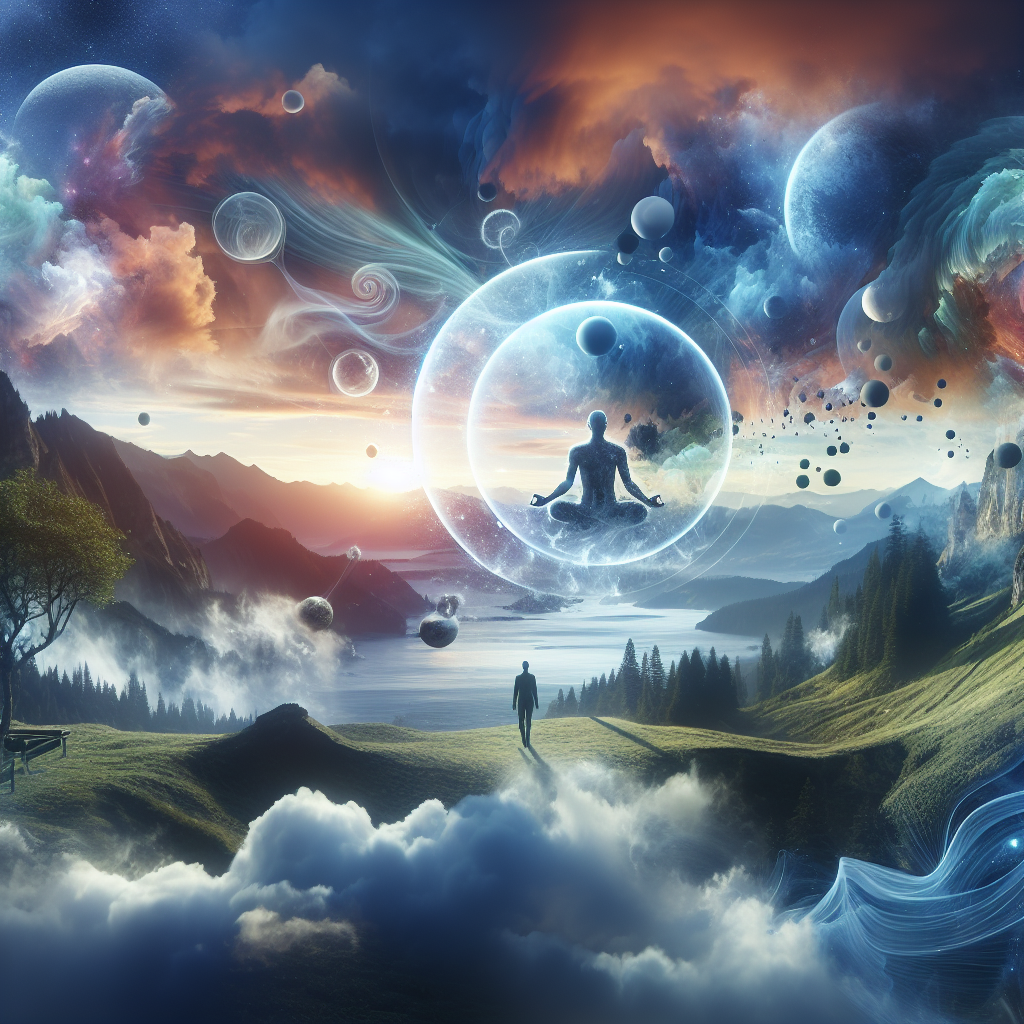Spiritual Devotional about Non-Duality and Oneness
Embracing the Divine Dance of Non-Duality and Oneness
Greetings Beloved Souls,
Today, let us dive deep into the ocean of consciousness and explore the profound and transformative concept of non-duality and oneness. This spiritual principle speaks to the heart of our existence, reminding us of the interconnectedness and unity that underpins all of creation. Let’s embark on this journey together, illuminating our spirits with the radiant light of divine truth and love.
The Beauty of Non-Duality
Non-duality, or "Advaita" in Sanskrit, translates to "not two." It is the understanding that, at the deepest level, all distinctions and separations are illusions. In essence, non-duality teaches us that we are intimately connected to everything and everyone. It suggests that beyond the surface differences, we are all expressions of the same divine essence.
Biblical Parallels
The Bible, too, reverberates with the wisdom of oneness and divine unity. In the Gospel of John, Jesus says, "I and the Father are one" (John 10:30). This statement is a direct reflection of non-dual awareness, pointing to the intimate oneness with God that transcends the appearance of separation. Jesus exemplifies this unity and calls us to awaken to our inherent divinity as children of God.
The Spirit of Love
Paul, in his letter to the Corinthians, beautifully illustrates the interconnected nature of humanity when he writes, "For just as the body is one and has many members, and all the members of the body, though many, are one body, so it is with Christ" (1 Corinthians 12:12). Here, Paul uses the metaphor of a body to emphasize that while we might have different roles and functions, we are all part of a singular, divine organism. Love is the force that binds us together, making us whole.
The Transformative Power of Oneness
Understanding and embracing non-duality and oneness can be transformative. It urges us to look beyond external differences—race, religion, culture—and see the divine spark within every individual. It fosters compassion, empathy, and a sense of brotherhood and sisterhood.
When we recognize that we are all interconnected, acts of kindness, charity, and love become natural expressions of our true selves. Each loving action becomes a ripple in the cosmic ocean, reverberating far and wide, touching countless lives.
Living the Truth of Oneness
How, then, can we live out this divine truth in our daily lives? Here are a few ways to practice and embody the principle of oneness:
-
Practice Mindfulness: Engage in spiritual practices like meditation, prayer, or contemplative reading. These practices help quiet the mind and reveal the unity that lies beneath our busy thoughts.
-
See the Divine in Everyone: Make a conscious effort to see beyond appearances and recognize the divine essence in everyone you meet. Treat others with kindness, patience, and love.
-
Serve with Love: Find ways to serve your community and the world. Acts of service, no matter how small, are powerful expressions of our interconnectedness.
-
Embrace Unity in Diversity: Celebrate differences as expressions of the infinite creativity of the Divine. In our diversity, we can find common ground and mutual respect.
A Joyful Reunion
Beloved, the journey towards non-dual awareness and oneness is a joyous reunion with our true nature. It’s a return to the divine ground of being, where we realize that we are all threads in the magnificent tapestry of creation, woven together by the hand of the Divine Weaver.
Let us walk this path with open hearts and minds, guided by the light of love and the wisdom of unity. Remember, in the grand symphony of life, each one of us contributes a unique note, and together, we create a harmonious melody that echoes through the ages.
May your heart be ever filled with the joy and peace of knowing that you are one with all that is.
With Divine Love and Blessings,
[Your Name]
Explore and dig up answers yourself with our BGodInspired Bible Tools! Be careful – each interaction is like a new treasure hunt… you can get lost for hours 🙂
Q&A about Non-Duality and Oneness
Q: What is Non-Duality?
A: Non-Duality, or "Advaita" in Sanskrit, is a philosophical and spiritual concept that asserts there is no fundamental separation between the individual and the universe. It posits that all distinctions are ultimately illusory and that there is only one reality or being, often referred to as "the Self," "Consciousness," or "the Absolute."
Q: How does Non-Duality differ from Oneness?
A: While both concepts emphasize unity, Non-Duality specifically focuses on the absence of dualistic distinctions, such as self/other, good/evil, and subject/object. Oneness emphasizes the interconnectedness and unity of all existence. In essence, Oneness can be seen as an aspect or corollary of Non-Duality.
Q: Can Non-Duality be experienced, or is it just a belief?
A: Non-Duality is often considered to be beyond intellectual understanding and is described as something that can be directly experienced. Spiritual practices such as meditation, self-inquiry, and mindfulness are often recommended to help individuals realize or become aware of this non-dual awareness.
Q: What is the Self in the context of Non-Duality?
A: In Non-Duality, the Self is not the individual ego or the personality but the underlying, unchanging awareness that transcends all personal identities and experiences. It is the universal consciousness that is the same in all beings.
Q: How can one realize Non-Duality?
A: Realizing Non-Duality involves shifting one’s perception away from the dualistic view of the world. Practices such as Advaita Vedanta self-inquiry (questioning "Who am I?"), Zen meditation, and mindfulness can help dissolve the sense of separation and reveal the underlying unity of all things.
Q: What are the implications of Non-Duality for daily life?
A: Realizing Non-Duality can lead to a profound sense of peace, compassion, and equanimity. It can diminish fear and anxiety, reduce attachment to material possessions and individual ego, and foster a deeper sense of connection with others and the world.
Q: How do Non-Duality and Oneness relate to different religious and spiritual traditions?
A: Non-Duality and Oneness are core principles in various religious and spiritual traditions. In Hinduism, it is central to Advaita Vedanta. In Buddhism, the concept is akin to "emptiness" or "sunyata." In Christianity, it resonates with the mystical experiences of unity described by saints and mystics. Similar themes can also be found in Sufism within Islam, Taoism, and various indigenous spiritual systems.
Q: Is the realization of Non-Duality a permanent state?
A: Realizing Non-Duality can vary for individuals. For some, it might be a sudden and permanent transformation, while for others, it may be a gradual process with temporary glimpses followed by a more sustained experience. Maintaining this awareness often requires ongoing spiritual practice.
Q: Can science validate Non-Dual experiences?
A: While Non-Duality is primarily a philosophical and experiential assertion, some scientific fields like quantum physics, neuroscience, and psychology are exploring the nature of consciousness and the interconnectedness of reality. These inquiries may offer insights that align with or suggest cooperation with non-dual principles, though direct validation remains a matter of ongoing exploration.
Q: How can embracing Non-Duality change our perspective towards challenges in life?
A: Embracing Non-Duality can transform the way we see and respond to challenges. By recognizing the illusory nature of separation and understanding that all experiences, even challenging ones, are part of the same underlying reality, one can approach life with greater acceptance, flexibility, and resilience. This perspective can reduce suffering and promote inner peace.
Would you like to delve into any specific aspect of Non-Duality or Oneness further?


